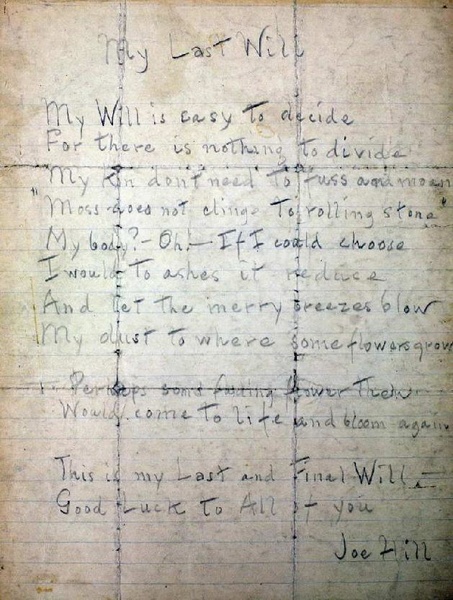No nos moverán
No nos moverán
ok. 1929-1974
[D]No, [G]no, [A]no nos moverán
No, no, [D]no nos moverán
Como un ár[G]bol firme junto al [D]rio
[A7]No nos move[D]rán!
U[D]nidos en la lucha!
[A]No nos moverán!
Unidos en la lucha!
[D]No nos moverán
como un ár[G]bol firme junto al [D]rio
[A7]No nos move[D]rán
No, no, no nos moverán
No, no, no nos moverán
Como un árbol firme junto al rio
No nos moverán!
Unidos en la huelga!
No nos moverán!
Unidos en la huelga!
No nos moverán
como un árbol firme junto al rio
No nos moverán!
No, no, no nos moverán
No, no, no nos moverán
Como un árbol firme junto al rio
No nos moverán!
Unidos en la vida!
No nos moverán!
Unidos en la vida!
No nos moverán
como un árbol firme junto al rio
No nos moverán!
No, no, no nos moverán
No, no, no nos moverán
Como un árbol firme junto al rio
No nos moverán!
„No nos moverán” znaczy dokładnie: „nie ruszą nas”. Piosenka ta wywodzi z pieśni ludowej I Shall Not Be Moved śpiewanej przez Afroamerykanów. Oznaczała wówczas, że śpiewający piosenkę „są nieporuszeni” w swej wierze w Boga.
W zsekularyzowanej wersji utwór stał się popularny jako protest-song śpiewany przez Ruch Praw Obywatelskich. Utwór w hiszpańskojęzycznej wersji znalazł się na albumie Joan Baez „Gracias a la vida” z 1974 roku. Baez śpiewała go również w Los Angieles, kiedy to protestowała przeciw eksmitowaniu biednych farmerów z tzw. South Central Farm, obszaru rolnictwa miejskiego wokół miasta. Przywiązała się wówczas do drzewa.
